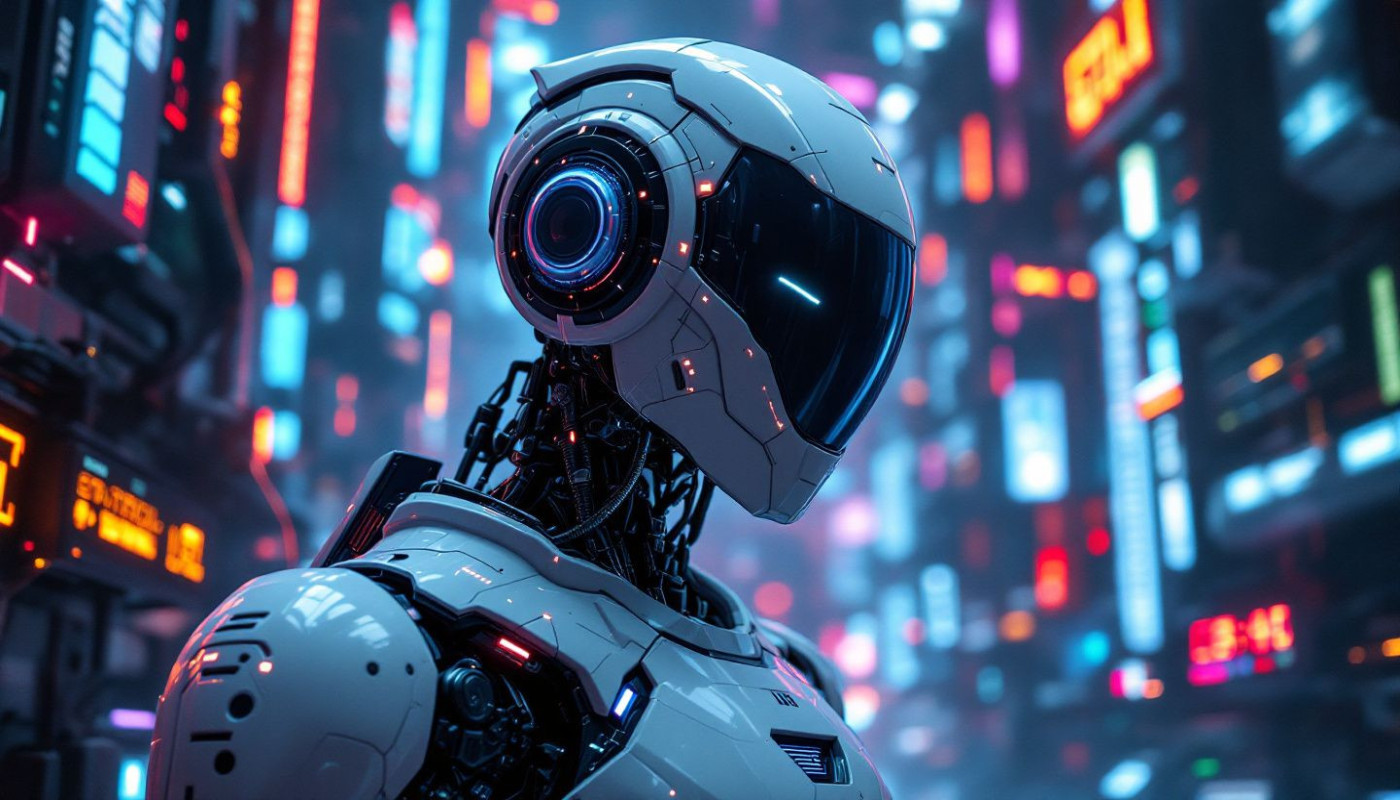Table of contents
Artificial Intelligence (AI) is a revolutionary technology and its impact on different sectors is undeniable. However, its influence on cybersecurity is a subject of spirited discussion among tech enthusiasts. While some see AI as a lifesaver making cybersecurity more efficient and robust, others view it as a potential risk, with fears of it being exploited by cybercriminals. This article aims to provide an unbiased exploration of whether AI is a boon or a threat to cybersecurity. Are we safer with AI defending our digital borders, or are we opening Pandora's box for cybercriminals to exploit?
The Evolution of Artificial Intelligence in Cybersecurity
The realm of cybersecurity has experienced significant transformations with the evolution of Artificial Intelligence (AI). Initially, AI in cybersecurity was a novel concept, but over time, it has become a strategic necessity. One of the breakthroughs is the capability for threat detection, where AI algorithms can identify potential cyber threats with increased precision and speed compared to traditional human-based methods.
AI's evolution in cybersecurity is characterized by the adoption of Machine Learning (ML) technologies. ML, a subset of AI, has been instrumental in bolstering threat detection capabilities. It allows cybersecurity systems to learn from past incidents, adapt to new threats, and predict future attacks.
Moreover, AI has revolutionized threat mitigation in cybersecurity. It not only identifies potential cyber threats but also takes proactive measures to neutralize them. Consequently, the efficiency of cybersecurity operations has been dramatically improved, reducing the time and resources required to manage cyber threats. Thus, the evolution of AI in cybersecurity signifies a significant leap forward, offering robust and efficient solutions for threat detection and mitigation.
Artificial Intelligence as a Boon to Cybersecurity
Emerging technologies continually shape the digital landscape, and artificial intelligence (AI) stands as a paramount example. The AI benefits manifest significantly in the realm of cybersecurity enhancement. Chief among these benefits is efficiency. When compared to traditional methods, AI-driven systems detect and neutralize threats with startling speed and accuracy. This rapid response is fostered by AI's ability to process vast amounts of data swiftly. Furthermore, the use of Neural Networks, a sophisticated system modeled on the human brain, has revolutionized predictive analysis in cybersecurity. This remarkable feature allows the AI to anticipate potential challenges by recognizing patterns and adapting to new information. The combination of speed, efficiency, and predictive analysis positions AI as a formidable ally in strengthening cybersecurity frameworks.
Potential Threats of AI in Cybersecurity
In the realm of cybersecurity, the integration of AI can be a double-edged sword. While it has the potential to bolster security measures significantly, it also introduces a host of new risks. One of the most alarming AI threats is the prospect of cybercriminals harnessing this innovative technology for their nefarious purposes. Such malicious AI use could manifest in various forms, including the creation of sophisticated malware and the conduct of highly targeted cyber-attacks.
An illustration of AI exploitation in the cybercrime landscape is the rising concern around 'Deepfake'. This technique employs artificial intelligence to forge realistic audio, video, or photo content, opening doors for identity theft, misinformation, and manipulation. The potential of Deepfakes to disrupt cybersecurity and compromise personal or corporate safety cannot be understated, reinforcing the importance of treating AI-based technologies with caution.
Ultimately, while AI in cybersecurity brings along promising possibilities, the associated risks demand rigorous safeguards. As the technology advances, the challenges it presents to cybersecurity will likely multiply, requiring an equal, if not greater, evolution in defense strategies.
Measures to Safeguard AI in Cybersecurity
As the integration of Artificial Intelligence (AI) within cybersecurity measures becomes increasingly prevalent, there is a growing need to establish strict protocols to prevent AI misuse. Recognizing the potential risks that AI can pose, cybersecurity experts are actively involved in developing comprehensive strategies to ensure AI safeguards. The key to this is AI Ethics, a term encompassing the moral responsibility of using AI righteously.
At the forefront of this endeavour is the development of robust AI threat preparation strategies. These strategies involve rigorous testing and simulation of AI systems to identify potential vulnerabilities and address them proactively. Additionally, AI systems are constantly monitored to detect any anomalies or suspicious activities, thereby achieving effective AI misuse prevention.
In cybersecurity strategies, a vital aspect is the implementation of strict access controls and data encryption techniques. These measures ensure that AI systems are not easily accessible to intruders, thereby reducing the risk of exploitation. Furthermore, cybersecurity experts are investing in continuous education and awareness programmes to keep themselves and their teams updated on the latest threats and countermeasures in the realm of AI.
In conclusion, while AI presents some potential risks, with the right measures and adherence to AI Ethics, it can be harnessed safely, making it a significant asset to cybersecurity rather than a threat.
Conclusion: AI in Cybersecurity – Boon or Threat?
In wrapping up this analysis, the AI conclusion can be seen as a double-edged sword in the realm of cybersecurity. On one hand, the AI influence has been notably beneficial, presenting advanced capabilities to detect, predict and mitigate cyber threats, thereby driving the cybersecurity evolution. This is substantially thanks to the deployment of Autonomous Cyber Defense Systems, which leverage AI to autonomously identify and counteract cyber-attacks. These systems significantly enhance the efficiency and effectiveness of cyber defense, marking a notable AI pro.
On the contrary, there are also AI cons to consider. The same sophisticated technology could potentially be exploited by threat actors to launch more advanced, hard-to-detect cyber-attacks. Hence, while AI offers promising solutions to cybersecurity challenges, it simultaneously poses potential risks that could escalate the severity of cyber threats.
Therefore, it is evident that AI in cybersecurity is both a boon and a threat. While it presents game-changing opportunities for enhancing cybersecurity measures, it also invites a new level of danger. It is, in essence, a race between using AI for protection and its potential misuse for disruption. Consequently, the cybersecurity future will hinge on how effectively we can maximize the benefits of AI while mitigating its risks.
On the same subject

Enhancing Your Tech Ecosystem For Better Workflow

Understanding The Impact And Recovery Process Of Ransomware On Businesses

Exploring The Future Of Automated Infrastructure Management Platforms

How AI Is Revolutionizing Photo And Video Editing For Creative Expression

How Linux Patch Management Contributes To Overall System Security

Exploring The Security Implications Of AI In Everyday Computing

How Generative AI Is Revolutionizing Data Analysis And Interpretation

Discovering the Hidden Dangers of Deepfake Technology

Quantum Computing: Is it the Future?

